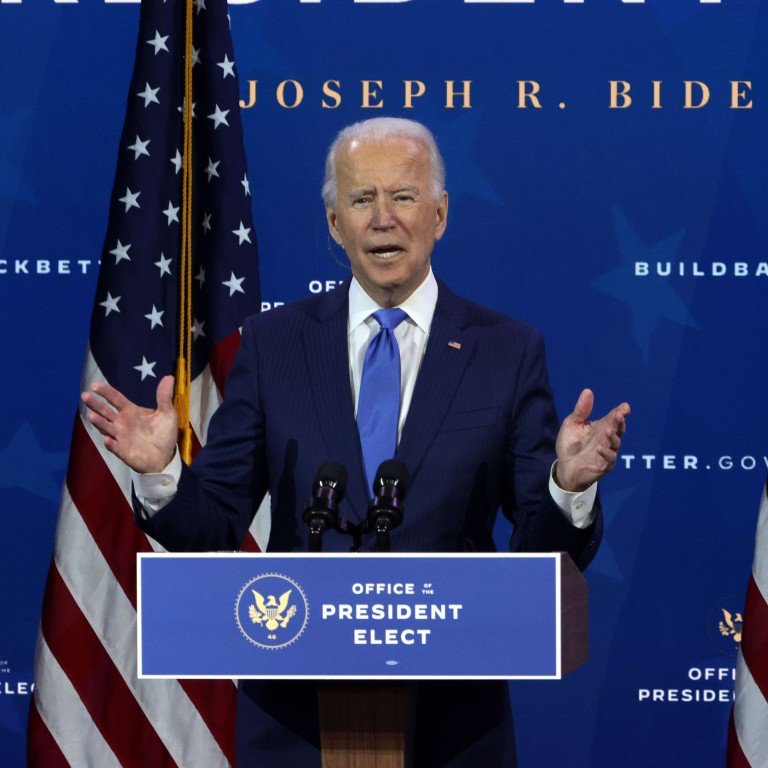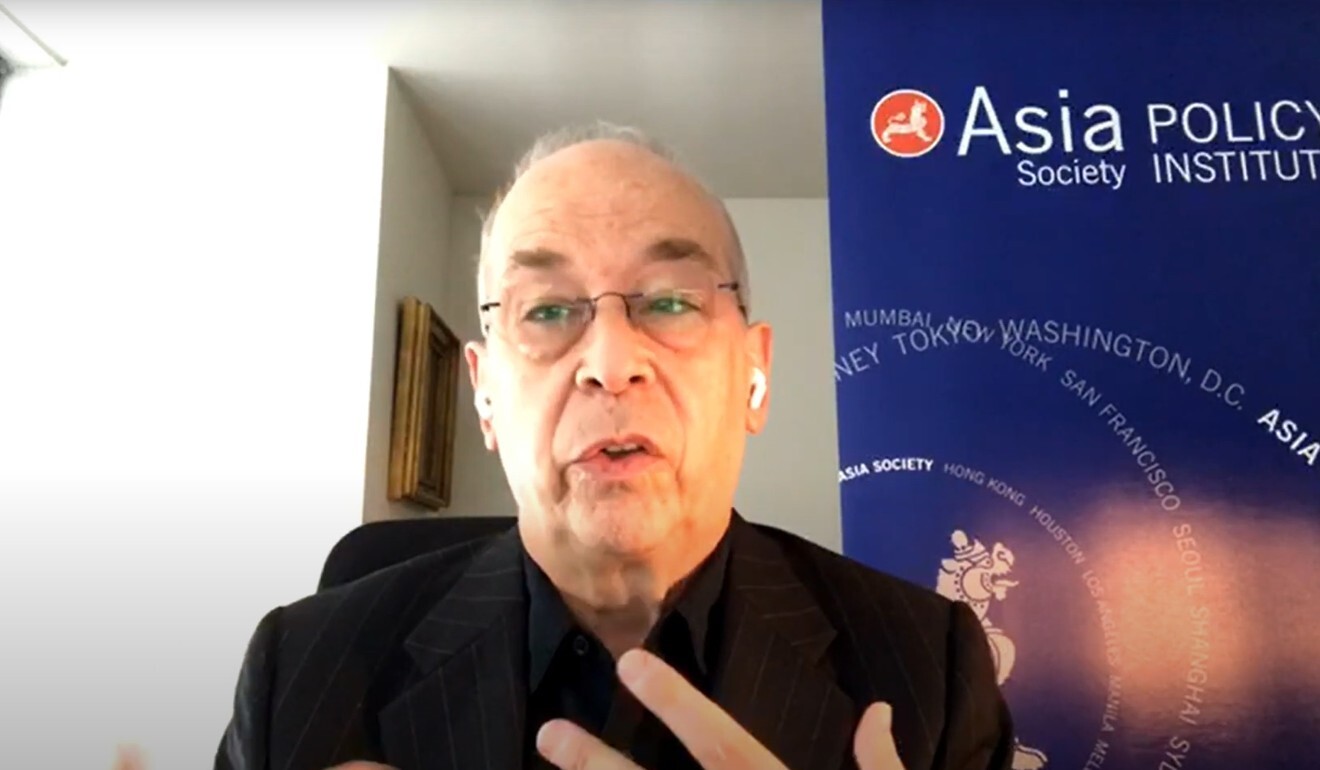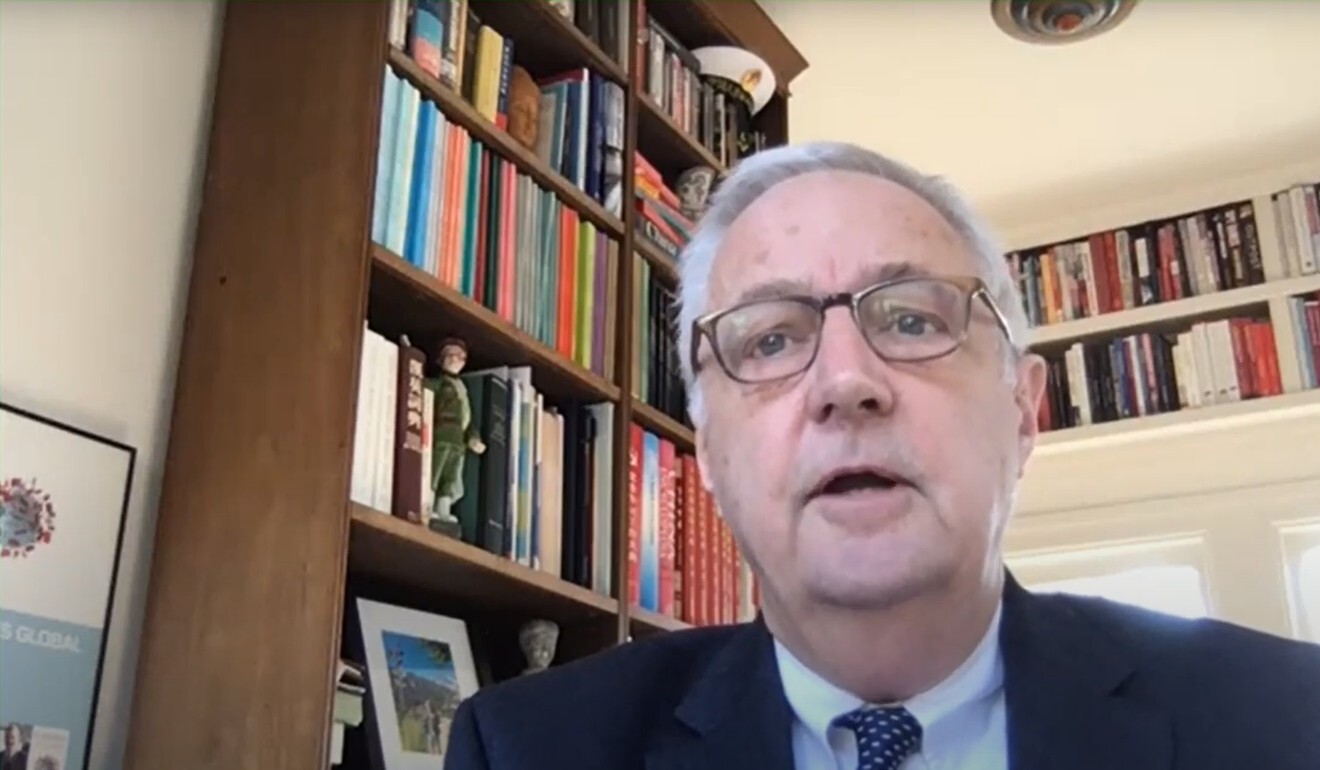
Joe Biden should repair US alliances before meeting with Xi Jinping, China analysts say
- The new US administration must restore America’s reputation globally, one panellist at China Conference says
- But China has also contributed to worsening ties, another panellist says, by ‘overreaching and overstepping’ around the world
US President-elect Joe Biden should avoid any summit meetings with Chinese leader Xi Jinping until Beijing tones down its behaviour and Washington repairs its own alliances first, a group of China experts in the US warned on Tuesday.
Speaking at the annual China conference, organised by the South China Morning Post and held virtually this year, long-time China watchers said that while the two countries might not fully cut ties with each other after Biden takes office next month, they seem almost certain to be headed toward a more serious competition.
I believe the United States should not engage in summitry very early with China, in part because the Chinese view the United States as weak and in decline
The analysts cited China’s trade violations, its subsidies to corporate national champions, its refusal to consider criticism and its provocative actions around the world as impediments to the kind of environment that would accommodate high-level meetings.
“I believe the United States should not engage in summitry very early with China, in part because the Chinese view the United States as weak and in decline,” said Bonnie Glaser, director of the China Power Project at the Centre for Strategic and International Studies.
“We have to first fix our own country, reinvigorate our alliances and restore our reputation.”
Biden, who will be taking office next month, has emphasised the importance of America’s military alliances during the transition period, but he is also expected to be more open to negotiation with Beijing even if anti-China sentiment in both US political parties prevents him from reversing the aggressive posture that US President Donald Trump has taken.
Both are regarded in Washington as officials who may be open to negotiating with the Chinese government, though they have also made comments since leaving government suggesting that they now view China as more of a threat to US interests than they did before.
Panellist Daniel Russel, who served as a top East Asia adviser to president Barack Obama, said that both Washington and Beijing seem to have hardened their positions in recent years.
“Somebody like me, who was a pretty tough opponent at the negotiating table with the Chinese … suddenly went from being considered a hardliner to being on the sort of extreme conciliatory end of the spectrum in US policymaking, without moving a muscle,” Russel said.
Even so, he said, the ultimate responsibility for US distrust toward China is Beijing’s.
Russel said that Beijing needed to develop “the capacity to actually hear what other parties and countries are actually trying to communicate, trying to tell it”.

“It’s not the echo chamber of the Chinese Communist Party system,” he added.
David Shambaugh, director of the China Policy Programme at George Washington University, stressed that “the only country that can make China a pariah on the world stage is China itself”.
Saying that China was “overreaching and overstepping” around the world, he added: “It’s producing pushbacks, criticism, anxiety, discomfort and resistance.” he added.

The experts said that despite the growing US-China tensions, it was still difficult to imagine the two countries would stop talking altogether.
Glaser suggested the US offer “working-level talks” first, perhaps over trade.
“We can identify where progress can be made,” she said.
“They should begin with a serious trade negotiation where many of the issues that the US is concerned about, that it insisted for many years but weren’t addressed in the Trump administration – Chinese subsidies for state-owned enterprises, continuance of stealing of intellectual property – these issues have to be addressed.”
Russel added that it was “unconscionable” that there would be no more functioning channels for dialogue at the end of the Trump administration.
Ex-Australia PM Rudd sees US-China re-engagement but no return to ‘status quo ante’
“I think it’s dangerous and it virtually guarantees that problems are going to multiply and get worse,” he said.
Cheng Li, director of the John L. Thornton China Centre at the Brookings Institution in Washington, agreed that a Biden-Xi summit soon after the president-elect’s inauguration would be premature, although he cited reasons other than China’s actions and work to shore up America’s traditional alliances.
Biden avoiding a meeting with Xi early in his tenure would provide a contrast with Trump’s own decision to meet the Chinese leader in Florida in April 2017, only a few months after he was sworn into office.
Such an approach would carry little risk because “the political atmosphere in the US ... is still quite negative about China.”
“We probably won’t see this kind of meeting as early,” Li said.



